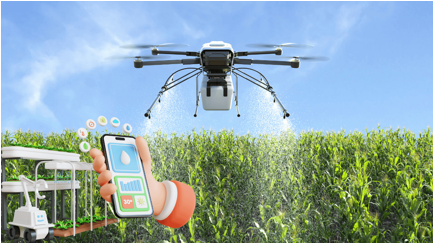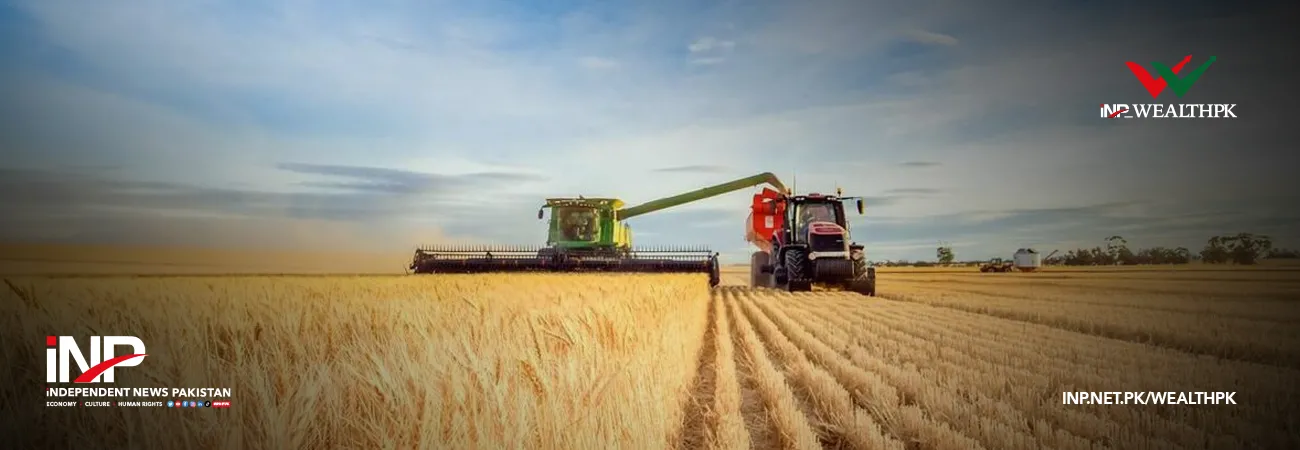INP-WealthPk
Muhammad Saleem
Educating small farmers on modern agricultural technologies and best practices can significantly enhance the sector's productivity and sustainability, Dr. Khalid Ahmed, a faculty member of the University of Agriculture Faisalabad, told WealthPK.

According to Dr Khalid, in light of climate change, the farmers must be practically trained on precision agriculture – even on a small scale – through simple practices like soil testing and targeted fertilizer application. Such an approach, he said, would help eliminate wastage of resources and improve crop productivity. He said drip irrigation and other water conservation methods are also essential especially since water shortage in Pakistan is surging.
The farmers should also be trained on integrated pest management that may minimize the use of expensive and toxic pesticides. He stressed that it is the responsibility of the policymakers and universities to assist the farmers through better seed varieties that are more resilient and productive. “There is no other way except to have effective transfer of knowledge. It will empower the farmers to battle climate change, maximize yields and stay afloat,” he added.
Asked on how research institutions and universities can better collaborate with the local communities in order to make sure that the latest research findings reach the small farmers, Dr. Khalid responded by saying, “We have to bridge the lab and the land gap.” He observed that a good part of research finds its way in published articles rather than reaching the farmers who could actually benefit from it.
In order to alter this, he strongly emphasized the need for direct engagement, including pilot projects in different regions and frequent workshops in order to connect researchers and farmers. He emphasized that effective collaboration between the farmers, researchers, and universities is crucial as continuous feedback is essential. “Only farmers can tell researchers what their real problems are, so research can be aligned with practical needs.
It’s a two-way street – we need to understand the real challenges the farmers face,” he said. Addressing a gathering of government officials linked to the agriculture sector, UAF Vice Chancellor Dr Zulfiqar Ali emphasized that raising awareness and ensuring access to the latest agricultural technologies and expert recommendations – especially among the small farmers – was crucial to tackle the enormous agricultural challenges, ensure food security and beef up the farmers’ incomes.
He emphasized that new trends in agriculture must reach the farming community because they will not only enhance productivity but also increase income of the farmers. He said, “In the wake of difficulties being faced by the farmers in this modern era, we need to adopt the latest farming practices to meet the demands of the increasing population.” Muhammad Rizwan, a farmer, told WealthPK that agriculture is generally taken as the backbone of Pakistan, and this vital sector is managing to stay afloat due to the untiring efforts of the farmers.
He said climate change is reshaping the cultivation patterns, and therefore, comprehensive strategies must be developed to equip the farmers to tackle these evolving challenges. “By investing in their knowledge, we will not just support agriculture, but also safeguard the prosperity and food security of Pakistan,” he said. According to him, the rulers are usually very fond of acknowledging the small farmers as the heart of agriculture and leaders to economic growth and development, but their actions tell a different story.
The response of policymakers towards climate change is not adequate, even though they know that the farmers do not have knowledge and means to thrive. He emphasized that educating farmers about modern technologies and introducing best practices could lead to a quiet revolution in all spheres of agriculture. Rizwan said an influx of information has overwhelmed everyone, and the farmers are no exception. The biggest challenge for them, he noted, is often identifying what's new and what actually works in the field.
Most farmers still rely on traditional methods of cultivation as either they aren’t aware of modern alternatives or are hesitant to try them. Rizwan said critical knowledge – like improved seed types, efficient water preservation techniques, or a better understanding of the weather patterns – is often insufficient. “We see modern machinery on the social media but don't know whether it suits our land conditions or whether the farmers can even afford it.”
Credit: INP-WealthPk













